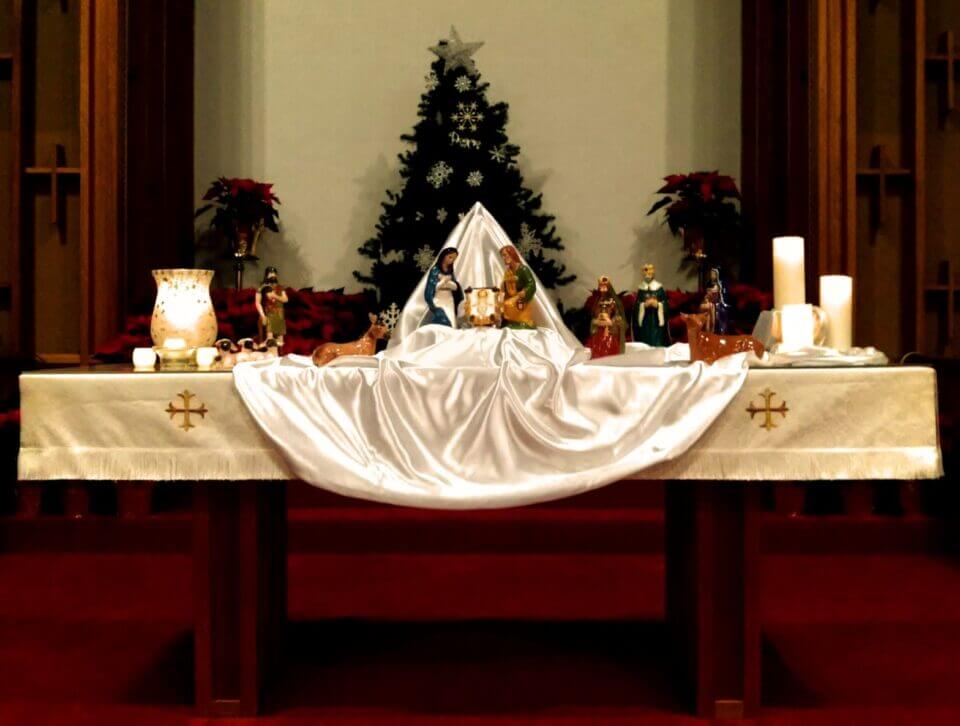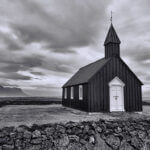
“Wesley’s hymns remind us of all that is good in the world and all that is true about the human condition.”
Of all the great Christian theologians down through the millennia, John Wesley ought to be the patron saint of hymns and poetry. While most of the familiar Wesleyan Christmas hymns contain the revised lyrics of George Whitefield (further revised in the magisterial Carol for Choirs), his poetic writings remind us of the intense joy of the season and the peace that the soul yearns for. Moreover, Wesley’s hymns remain an enchanting antidote to the partisans of the empty rainbow, and they make for an undeniable manifestation of what Edmund Burke called the “wardrobe of our moral imagination.”
I must profess that I am always disappointed when I do not hear some of the familiar Wesleyan Christmas hymns. Two favorites are “Come Thou Long Expected Jesus” and, of course, “Hark! The Heralds Angels Sing.” (A third, largely forgotten—but especially powerful—hymn is “Light of Those Dreary Dwelling”). Their popularity is undeniably tied to the fact that the lyrics, with their now familiar melodies, speak to the desire of the soul to unite heaven and earth together as one, in a grand dance and song of joyful praise and nourishment.
The genius of Wesley is borne out by the fact that his hymns have been grafted onto melodies that he did not originally intend. The flexibility of Wesley’s original hymns to conform to newer melodies—Mendelssohn’s “Gutenberg Cantata” and Rowland Prichard’s “Hyfrydol”—reveals the universal binding spirit and relationality that Wesley’s hymns are governed with. We do not sing alone. We sing with others—dead and living.
This Christmas, Wesley’s hymns are even more important as they remind us that we are not alone in the cosmos. This is all the more necessary when it is often the case that we feel burdened and alienated in our increasingly atomistic society. Walking the streets, we may hear the blaring forgettable pop songs of the modern Christmas zeitgeist—a spirit moved by what Theodor Adorno described as our fetishistic enslavement to the self’s consumeristic taste for cheap entertainment and forgetfulness. But Wesley’s words call us out of that slumbering forgetfulness and out of the empty cosmos to something grander and greater for those with eyes to see and ears to hear.
“Hark The Herald Angels Sing” is perhaps the most recognizable and eminently visible of Wesley’s enchanted hymns:
“HARK how all the Welkin rings
Glory to the King of Kings,
Peace on Earth, and Mercy mild,
GOD and Sinners reconcil’d!
Joyful all ye Nations rise,
Join the Triumph of the Skies,
Universal Nature say
CHRIST the LORD is born to Day!
HARK! the Herald Angels sing
Glory to the new-born King!
Peace on Earth, and Mercy mild,
God and Sinners reconcil’d.
Joyful all ye nations rise,
Join the triumph of the skies
With the angelic host proclaim
Christ is born in Bethlehem.”
Wesley’s words, juxtaposed against the more famous Carol for Choir lyrics, are governed by a spirit of mutual interdependence and a true cosmopolitanism. Not only do the words speak theologically and teach the singer and listener the theological truths of the Christian religion—perhaps naturally expected given Wesley’s clerical profession—they also unite corporeal and transcendent, ephemeral and eternal, humanity and heavenly host, together in a cosmic litany and communion that is so often lost in today’s modern world. The angels sing first. Followed by us. But we do not sing independent of each other; we join as one choir linking heaven and earth together in a grand harmonious song and dance, an imitative perichoresis that overflows in love and relationality.
Furthermore, the nations of the world unite in celebration and they join the “Triumph of the Skies”—linking arms with Nature or the “angelic host”—to proclaim He who is Love that entered the cosmos to reconcile all to Himself as per St. Paul. The words of Wesley’s hymn not only entail universal fraternity long before the ideological phantasmagoria of the French Revolution and the illusory dreams of proletarian revolution, but they also buttress against the spirit of Eryximachus and his descendants, who speak of the lonely cosmos. Wesley’s theological poetry returns us to Dante, who sings of the Love that governs the moon and the stars—and not the cold and desolate cosmos devoid of life and meaning. There is, as Wesley conveys, an unbreakable communion—fellowship—between the whole of the cosmos.
By directing our attention to a cosmic unity extending back before the creation, Wesley’s poetic lyrics call us not to forget and become lost in the self by invoking the “Welkin” or heavenly angels. As such, his words stand fast against the age of forgetfulness and mass consumerism which busily move us from place to place—forgettable and forgotten, as we speedily rush to fill our appetites. Additionally, the words call us to contemplation, yet as another barrier—per Adorno—against the mad rush of fetishistic entertainment and cheap thrills. Henry David Thoreau said not to read the times but to “read the eternities.” Wesley’s hymns teach us the same, a century before Thoreau!
“Come Thou Long Expected Jesus” is another staple of Wesley’s Christmas hymns. Like “Hark! The Herald Angels Sing,” “Come Thou Long Expected Jesus” captures the totality of the human condition and an enchanted cosmos in its verse:
“Come, thou long expected Jesus,
born to set thy people free;
from our fears and sins release us,
let us find our rest in thee.
Israel’s strength and consolation,
hope of all the earth thou art;
dear desire of every nation,
joy of every longing heart.”
St. Augustine famously wrote: quia fecisti nos ad te et inquietum est cor nostrum donec requiescat in te (“You have made us toward yourself, and our heart is restless until it finds rest in you”). Augustine’s most famous opening in the Confessions conveys two important realities: We have one heart (cor) and that this heart is made in love toward (ad te) the Image of Love and, therefore, constantly grows and yearns to find serenity in the abounding Love that created and continues to create.
Wesley’s call for Jesus to come and set us free theologically captures the yearning of the human heart (which is also the heart of the nations). For only in Love, for Christ is the Image of Love made flesh, are we freed of all “fears” and “sins” and can we journey to that blissful serenity that we all crave. At the same time as Wesley’s opening words capture that human yearning for freedom, redemption, and peace, they also remind us that we do not live in an impoverished cosmos. For the transcendent God has come and is coming (again). When we look up at the starry lights above us, we ought to smile and be caught up in a spirit of stillness, as we see the lights of love calling us to remember that Love itself created all and is recreating all toward itself.
Following the footsteps of Augustine, Wesley’s hymn realizes a solidarity in the shared human condition—the same human heart—and that we are united in this longing for freedom, consolation, and serene joy. Once again, we are not alone in our plight and desires. We are but one people, united in a shared yearning (that “longing heart”) and bound to be caught up in the waltz of redemption that ties heaven and earth together. Christmas, of course, is that time of the year to remember this profound truth: We do not live in a barren cosmos but, rather, live in one filled with beauty, radiance, and, most of all, with love pulsating through it.
While we may struggle and feel alienated, alone, and isolated, the words of Wesley’s call us back to a joyful solidarity and love. Wesley’s hymns remind us of all that is good in the world and all that is true about the human condition. They also call us to read the eternities and joyfully embrace a cosmic fellowship that has always been at the heart of the Christian understanding of the world and our place in it. Indeed, let us unite and “Join the Triumph of the Skies.” For if we cannot sing with the heavens, we will have nothing to sing about at all.
Paul Krause is a humanities teacher, classicist, and literary essayist. He contributed to the book The College Lecture Today (Lexington Press, 2019), is an Associate Editor at VoegelinView, and is host of the podcast Literary Tales.










